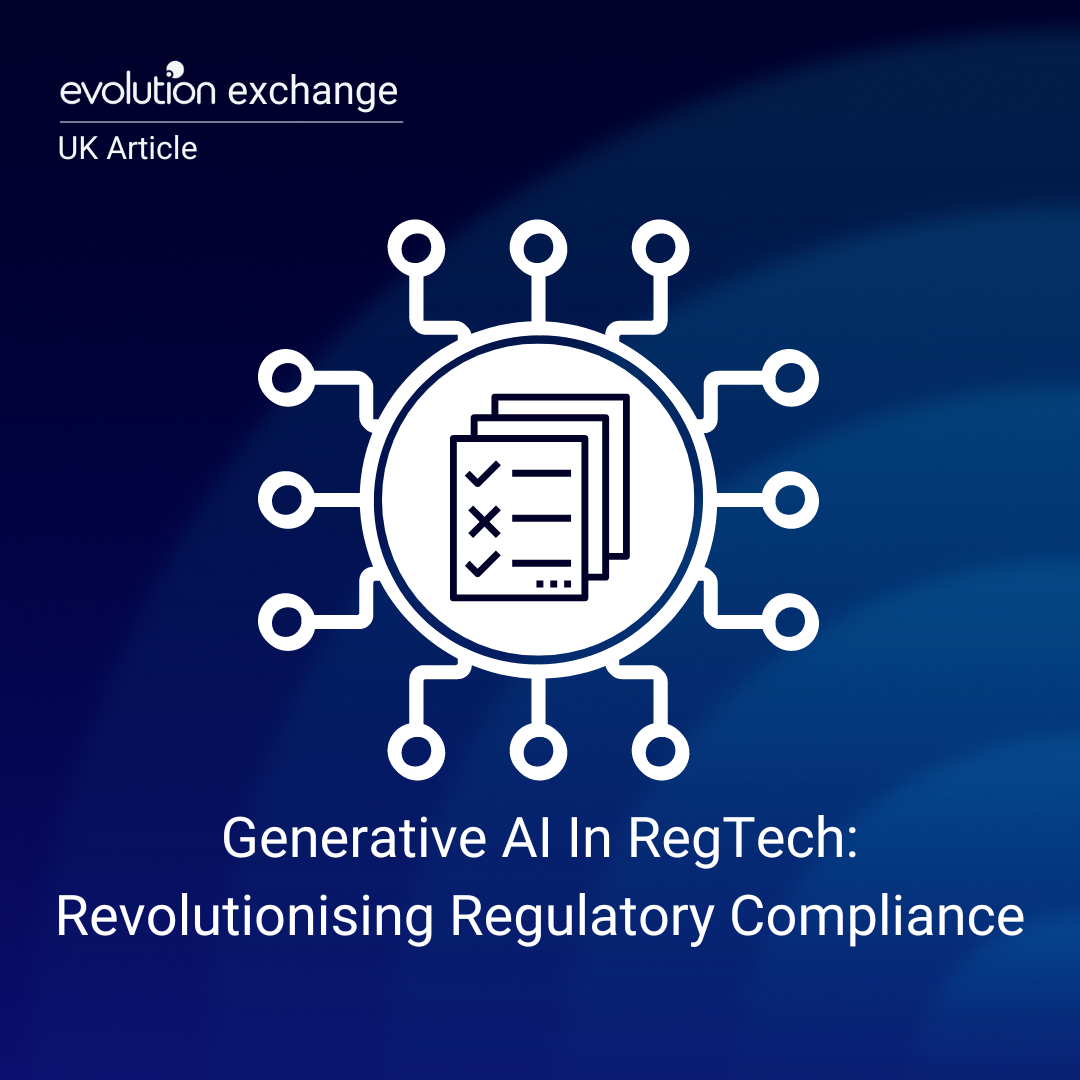Regulatory Technology, or RegTech, is a fast-evolving field that leverages advanced technologies to assist financial institutions in meeting their regulatory requirements. Among the most transformative innovations in this space is Generative Artificial Intelligence (AI). This subset of AI, known for its ability to create new data and patterns, is proving invaluable in addressing the complexities and demands of regulatory compliance.
Understanding Generative AI
Generative AI involves the use of machine learning models, particularly those based on deep learning, to generate new content. Unlike traditional AI, which primarily focuses on analysing existing data, generative AI can produce new data that is representative of the underlying patterns it has learned. This capability is particularly beneficial in RegTech, where compliance requirements are complex and constantly evolving.
Applications of Generative AI in RegTech
- Automating Compliance Processes
- Regulatory Reporting: Generative AI can automate the creation of regulatory reports by synthesising data from multiple sources. This ensures timely and accurate submissions, reducing the risk of non-compliance.
- Document Generation: AI can generate compliance documents tailored to specific regulations, ensuring that all necessary information is included and formatted correctly.
- Risk Management and Assessment
- Predictive Analytics: Generative AI models can predict potential compliance risks by analysing historical data and identifying patterns that may indicate future issues. This allows for proactive risk management.
- Scenario Analysis: AI can simulate various regulatory scenarios to assess their potential impact on the organisation, helping firms prepare for different regulatory environments.
- Enhanced Monitoring and Surveillance
- Transaction Monitoring: Generative AI can detect unusual patterns in transaction data that may indicate money laundering or fraud, improving the effectiveness of monitoring systems.
- Behavioural Analysis: By generating models of normal behaviour, AI can identify deviations that suggest regulatory breaches, enabling more accurate and timely interventions.
- Regulatory Intelligence
- Policy Analysis: Generative AI can analyse new regulations and generate summaries and insights, helping compliance teams quickly understand and implement changes.
- Trend Prediction: AI can predict regulatory trends by analysing past regulatory changes and current market conditions, aiding strategic planning and compliance strategy.
- KYC and AML Compliance
- Identity Verification: Generative AI can create synthetic identities to test and improve KYC (Know Your Customer) systems, ensuring they can accurately identify legitimate customers and detect fraudulent ones.
- AML Detection: AI models can generate patterns of typical money laundering activities, enhancing the ability of systems to detect and prevent these activities.
Benefits of Generative AI in RegTech
- Efficiency and Cost Reduction: Automating compliance tasks reduces the need for manual intervention, saving time and operational costs.
- Accuracy and Consistency: AI-driven processes ensure a high level of accuracy and consistency in compliance activities, minimising the risk of human error.
- Scalability: Generative AI systems can handle large volumes of data and scale with the growth of the organisation, ensuring compliance processes remain robust.
- Proactive Compliance: Predictive capabilities enable organisations to anticipate and address compliance issues before they become problematic, enhancing overall regulatory posture.
Challenges and Considerations
- Data Privacy and Security: Handling sensitive compliance data requires robust security measures to protect against breaches and ensure data privacy.
- Bias and Fairness: AI models must be monitored for biases that could lead to unfair compliance practices or decisions. Regular audits and updates are necessary to maintain fairness.
- Regulatory Acceptance: Regulators may be cautious about AI-driven compliance solutions. Ensuring transparency in AI processes and outcomes is crucial for gaining regulatory approval.
- Complexity of Implementation: Implementing generative AI systems can be complex and require significant investment in technology and expertise.
Generative AI is poised to revolutionise RegTech by automating and enhancing various aspects of regulatory compliance. Its ability to generate new data patterns and predictive insights offers financial institutions a powerful tool for managing compliance efficiently and proactively. However, to fully realise its potential, organisations must address the associated challenges of data privacy, bias, regulatory acceptance, and implementation complexity. By doing so, they can harness generative AI to create a more robust, efficient, and forward-looking compliance framework.





























